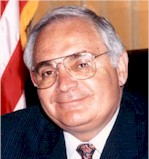
Bilirakis
House Subcommittee Holds Hearing on Medical Records Privacy
(July 18, 1999) The House Health Subcommittee held a hearing on medical records privacy legislation on Thursday, July 15. The members are split roughly along party lines between a Republican bill sponsored by Rep. Greenwood, and a Democratic bill sponsored by Rep. Condit.
| See, Summary of Medical Privacy Bills in the 106th Congress. |
The threat is posed by the development of computer technology and electronic databases. Congress is acting under a self-imposed deadline. The Health Insurance Portability and Accountability Act of 1996 set a deadline for Congress to pass legislation addressing the confidentiality of individual identifiable health information. If the Congress does not act by August 21, 1999, the Secretary of Health and Human Services is directed to issue regulations within six months to address the confidentiality of administrative data stored and transmitted electronically.
Several bills are pending in the House.
Based on the lists of cosponsors, and statements made by Representatives on the Health Subcommittee at Thursday's hearing, Republicans are supporting HR 2470, while Democrats are supporting both HR 1941.
Some points are not in dispute. There is widespread belief that legislation protecting the privacy of medical records is needed.
However, there are several major points of contention. First, the Greenwood/Republican bill would provide individuals no private right of action if their medical records have been exploited in violation of the provisions in the bill. In contrast, the Condit/Democratic bill does.
Second, the Greenwood/Republican bill would establish a single national standard by preempting state law. The Condit/Democratic bill would not preempt state law.
Third, Republicans argue that the Greenwood bill would not interfere with medical research.
 |
|
| Rep. Mike Bilirakis |
Rep. Mike Bilirakis (R-FL), the Chairman of the Subcommittee, presided at the hearing. He pointed out in his opening statement that "the Secretary's regulatory authority is limited to establishing standards for information that is transmitted and stored electronically -- a more narrow focus than the comprehensive approach taken in the bill before us. While the modern healthcare delivery system is increasingly electronic, most patient health information remains paper-based."
Rep. Bilirakis also stated that "this information must be safeguarded, and any abuse of it cannot be tolerated. However, we must also ensure that increased protections do not inadvertently jeopardize the quality of health care in this country. Any legislation must take into account the highly integrated and complex nature of our health care system."
Rep. Sherrod Brown (D-OH), the Ranking Minority Member, criticized the Greenwood bill in his opening statement, and advocated the Condit bill instead. (Rep. Condit is not a member of the Commerce Committee, and did not participate in the hearing.)
 |
|
| Rep. Sherrod Brown |
"The key differences between these two bills are the core issues in the privacy debate. Should individuals have a private right of action when their medical records have been exploited? Mr. Greenwood's bill does not establish this right. Mr. Condit's bill, of which I'm a cosponsor, does. Rights that can be denied without remedy are not rights -- they are hopes."
Rep. Brown also addressed preemption. "Should federal privacy laws pre-empt stronger state laws? The Greenwood bill says yes, our bill says no. States are typically the first to identify consumer issues, and they are the innovators when it comes to addressing them. Federal protections should function as the floor, not the ceiling, for medical privacy protections."
Rep. James Greenwood (R-PA), the sponsor of HR 2470, is a member of the Commerce Committee, and its Health Subcommittee. He stated that his bill seeks to accomplish two goals, medical information privacy, and enhancing research.
 |
|
| Rep. James Greenwood |
He also emphasized the following components of HR 2470.
Finally, he pointed that due to a drafting error, the "workplace information protection" section had inadvertently been left out. It will be added to the next draft.
Several other Democrats criticized the Greenwood bill during opening statements or questioning of witnesses. Rep. Henry Waxman (D-CA) said that "2470 would only exacerbate individuals' concerns" about privacy. Rep. Ed Markey (D-MA) promoted his own bill, HR 1057. Rep. Anna Eshoo (D-CA) criticized HR 2470's lack of a private right of action. "What good is a right unless you can enforce it."
Several Republicans spoke in favor of the bill, including Rep. Charlie Norwood (R-GA), Rep. Tom Coburn (R-OK), and Rep. Greg Ganske (R-IA). All three were doctors before they entered politics. Norwood practiced dentistry; Coburn was an obstetrician; and Ganske was a surgeon. The sole Democrat on the subcommittee with prior medical experience is Rep. Capps, who was a nurse.
|
What They Said |
| Mike Bilirakis
(R-FL) James Greenwood (R-PA) Sherrod Brown (D-OH) Diana DeGette (D-CO) Lois Capps (D-CA) |
| Tom Bliley (R-VA), the Chairman of the Commerce Committee, also released a statement. |
Rep. Lois Capps (D-CA), who joined the Commerce Committee at the beginning of this year, expressed her reservations about the bill. "The bill we are discussing today, the Medical information Protection and Research Enhancement Act of 1999, was introduced just this week. It is a complex bill and I am still evaluating it. But I do have some initial concerns. It appears that the bill does not provide individuals the basic right to seek redress for privacy violations, as it does not provide for a private right of action. It also seems to contain inadequate provisions regarding an individuals' right to notice of a health plan's confidentiality practices, requiring that a health plan need only post such a notice, instead of ensuring that individuals receive a copy."
Rep. Diana DeGette (D-CO) addressed medical research. "I am particularly concerned that any medical privacy legislation that is enacted establishes provisions that ensure the integrity of medical research."
She continued that "I am particularly troubled that some have criticized proposals that require an Institutional Review Board or a similar entity to review and approve all research utilizing medical records. Such entities ensure that the potential good of the research outweighs any privacy concerns, and that strong privacy protections are in place by preserving the confidentiality of the data that is collected. IRBs, and like-entities are used in almost every research setting."
She also stated that "I am puzzled that some are anxious to differentiate between privately and publicly funded research for IRBs and other privacy protection requirements."
Rep. Tom Bliley (R-VA), the
Chairman of the Commerce Committee, did not attend the hearing. Another
subcommittee of the Commerce Committee was holding a simultaneous hearing.
However, he released a statement.
In it he defended the Greenwood bill, and focused on medical research. "Mr.
Greenwood has done an excellent job in improving language that has been crafted,
reviewed, fought over, and agreed to over the last several years in the other
body," said Rep. Bliley.
"I wish that I could say the same for legislation that has been introduced
by my colleagues on the other side of the aisle. Despite the best of intentions,
the unintended consequences of bills like H.R. 1057 and H.R. 1941 could be very
dire for patients across the country. According to written testimony submitted
by the Biotechnology Industrial Organization at our last hearing on
confidentiality, H.R. 1057, the Medical Information Privacy and Security Act,
and H.R. 1941, the Health Information Privacy Act, "contain provisions that
will significantly impede medical research by requiring that all research be
monitored by an external entity." In fact, the testimony states, 'H.R. 1941
would expand the Federal government's role in private research by requiring that
all research, whether funded with private dollars or taxpayer dollars, be
reviewed by an entity certified by the Secretary using standards that are more
restrictive than that used by Institutional Review Boards.' "
The members of the subcommittee who participated in all or part of the hearing included Barrett (D-WI), Mike Bilirakis (R-FL), Sherrod Brown (D-OH), Ed Bryant (R-TN), Richard Burr (R-NC), Lois Capps (D-CA), Tom Coburn (R-OK), Barbara Cubin (R-WY), Diana DeGette (D-CO), Anna Eshoo (D-CA), Greg Ganske (R-IA), Gene Green (D-TX), James Greenwood (R-PA), Charlie Norwood (R-GA), Fred Upton (R-MI), and Henry Waxman (D-CA). Ed Markey (D-MA) is a member of the Commerce Committee, but not its Health Subcommittee. Nevertheless, he was given leave to participate in this hearing.